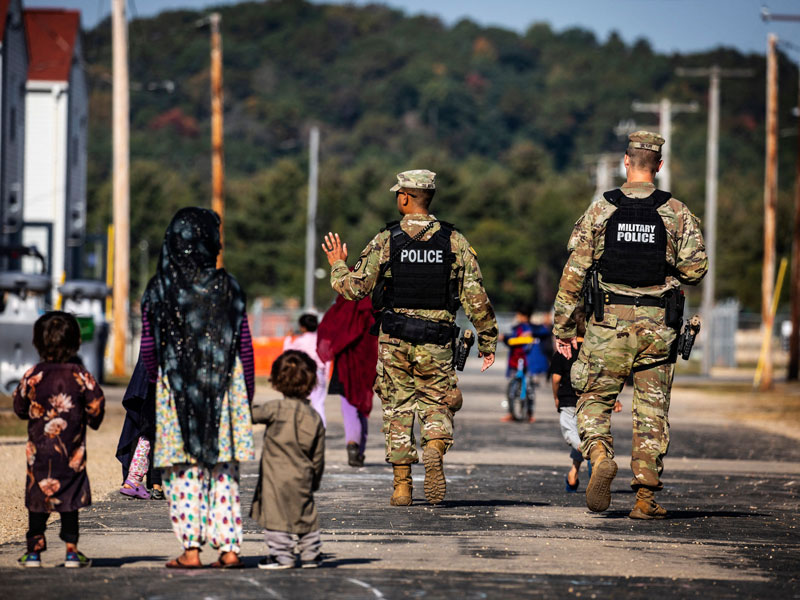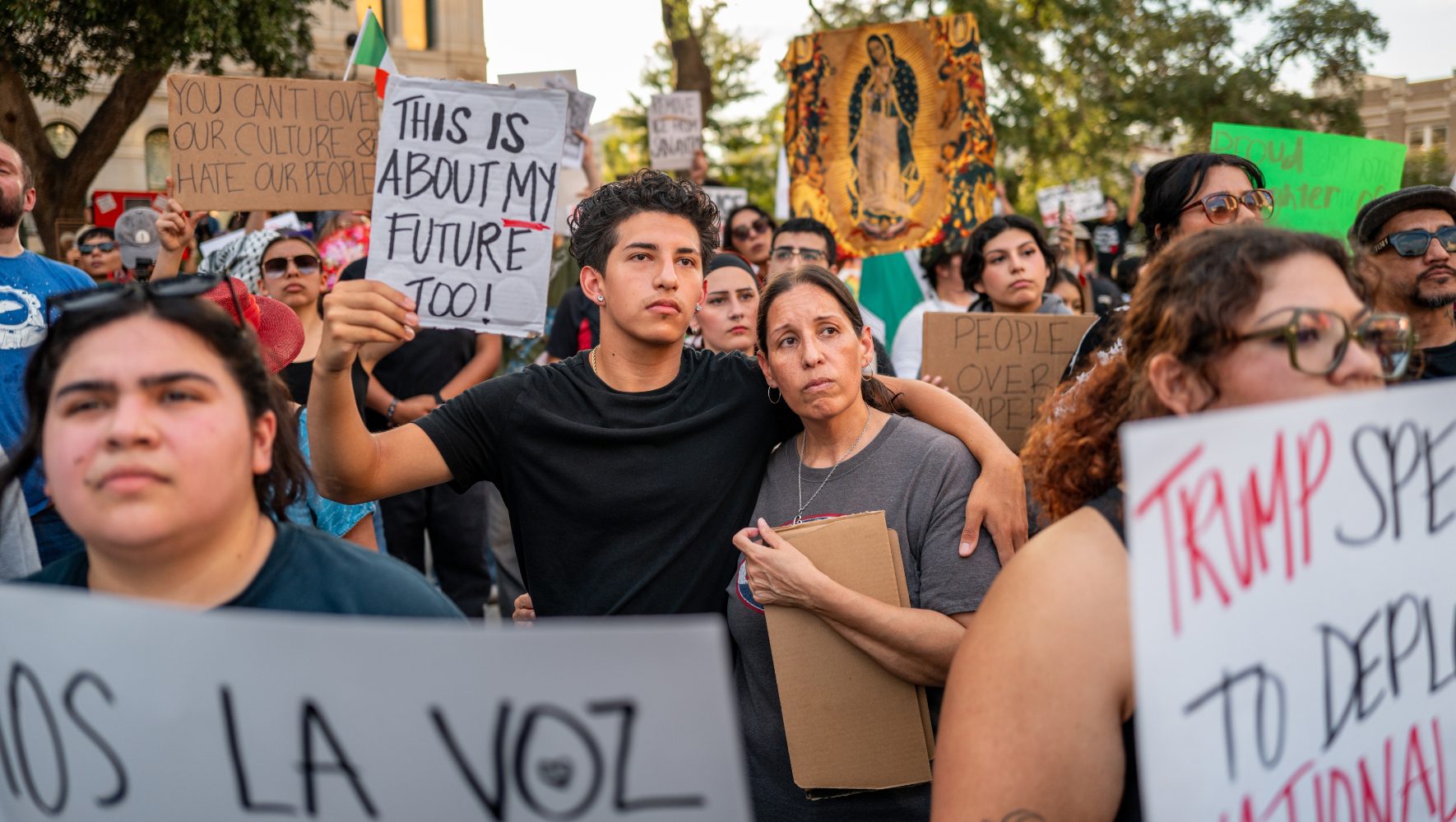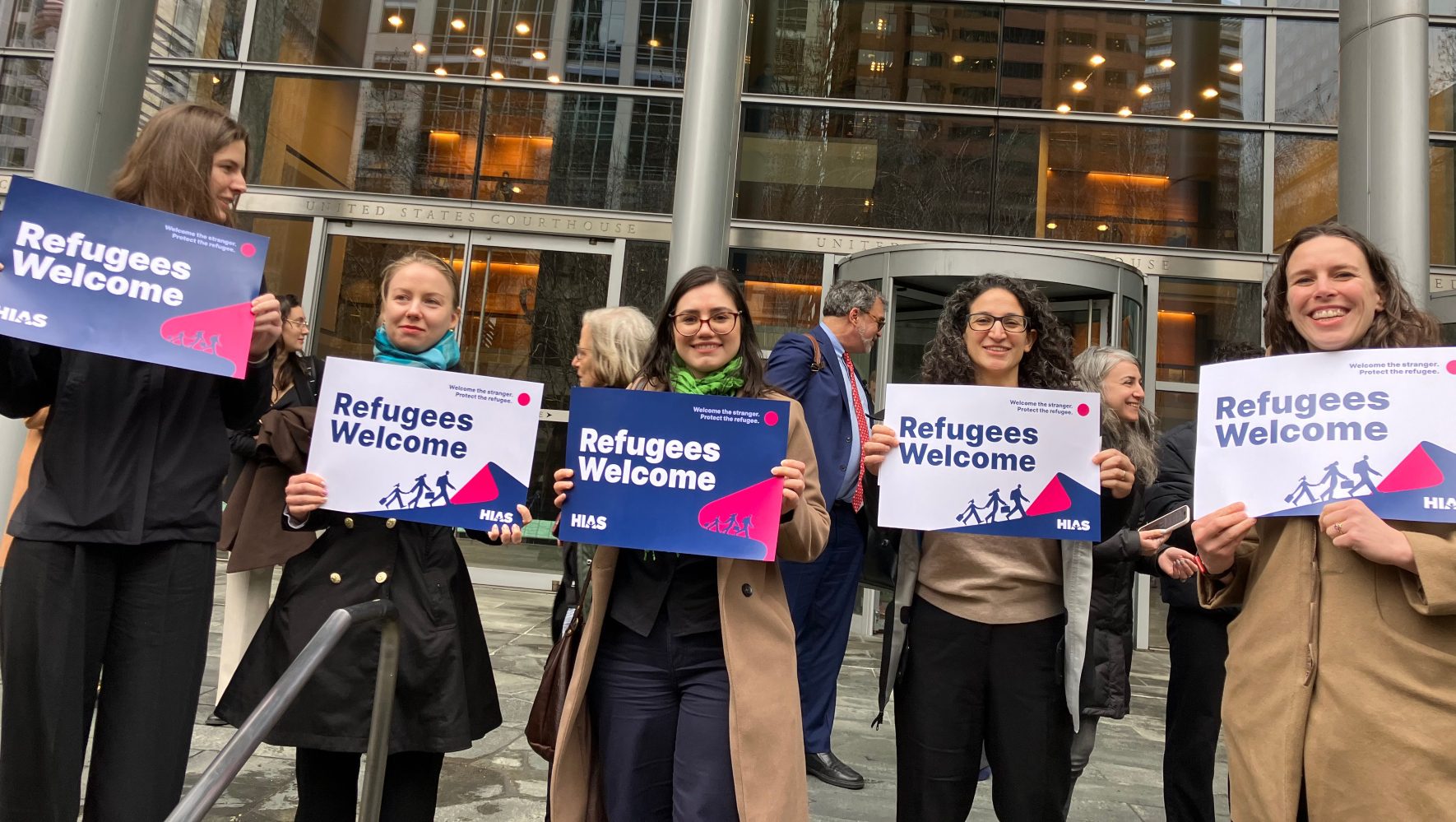Jewish Community Mobilizes to Pioneer New Resettlement Model
By Sharon Samber, HIAS.org
Nov 17, 2021

U.S. Military Police walk past Afghan refugees at the Village at the Ft. McCoy U.S. Army base on September 30, 2021 in Ft. McCoy, Wisconsin. About 45,000 Afghan evacuees are still living on military bases where they complete the processing necessary to resettle in the United States.
(Barbara Davidson /AFP via Getty Images)
The Afghan refugee crisis has hastened a change in refugee resettlement in the United States.
Last month the Biden Administration announced a new program that allows groups of private citizens to sponsor Afghan evacuees during the initial resettlement process. These "sponsorship circles" are a new frontier in the world of refugee assistance, and HIAS is playing a major role.
Sponsorship circles are not intended to replace traditional resettlement, which is the gold standard for resettlement services in the U.S. However, with approximately 45,000 Afghan men, women, and children still living on seven military bases around the country, there is a need to mobilize all the community resources to help guide these Afghan neighbors through their early days and months in the U.S.
Together with partners in the American Jewish community, HIAS is launching a network of what it hopes will be at least 100 sponsorship circles. Through these Welcome Circles, HIAS plans to resettle between 500 to 1,000 Afghan refugees in communities across the country. The U.S. has not used the private sponsorship model for several decades, but other countries, most notably Canada, have a long tradition of community sponsorship. More than 200 synagogues have expressed interest to HIAS, and the first Welcome Circles may start up as early as December.
“After 5 years of minimal refugee arrivals — which decimated the capacity of local resettlement agencies across the country — new, flexible, fast, and creative approaches are needed right now to welcome the large influx of people who are already on U.S. soil and need resettlement,” said Melanie Nezer, HIAS’ senior vice president for public affairs. “We anticipate that Welcome Circles will allow Afghan refugees to quickly begin to acclimate to their new lives in their new communities and will provide community members the chance to put their values into action by welcoming refugees.”
HIAS has been working with Jewish community groups on refugee issues for many years and now sees these communities across the country signing on with enthusiasm and a willingness to help.
“The Jewish community is rising to respond to this moment of urgency in so many ways,”said Isabel Burton, HIAS’ senior director for community engagement initiatives. “We at HIAS are impressed and grateful but we are not surprised, because we know how deeply the American Jewish community supports refugees, asylum seekers, and the forcibly displaced.”
Among other things, the circles will help secure housing, provide necessities like furniture and clothing, and assist in accessing government benefits such as schooling, food, and health care. Welcome Circles must raise at least $2,275 per individual to be welcomed and must commit to providing support for a minimum of 90 days. HIAS is strongly recommending that circles raise more money and commit to six months of support.
HIAS will provide varied support to the circles, including dedicated staff, resources on best practices in resettlement, peer-to-peer mentoring, and technical expertise — all of which are designed to assist circles along the way and in moments when potentially complex and difficult situations arise.
Rebecca Kirzner, HIAS’ senior director for grassroots campaigns, has been in touch with dozens of synagogues and is confident that their enthusiasm and willingness to engage will help lead the project successfully. One synagogue member even said they were sure they could handle this refugee crisis through sponsorship because they had done it before — 25 years ago, that is, when they assisted Jews from the former Soviet Union.
“We’re all doing everything we can,” Kirzner said. “We are adding capacity where we can and we are pulling out all the stops. It’s an unprecedented national moment and we are ready.”
If your congregation or organization is interested in forming a HIAS Welcome Circle, learn more here.



